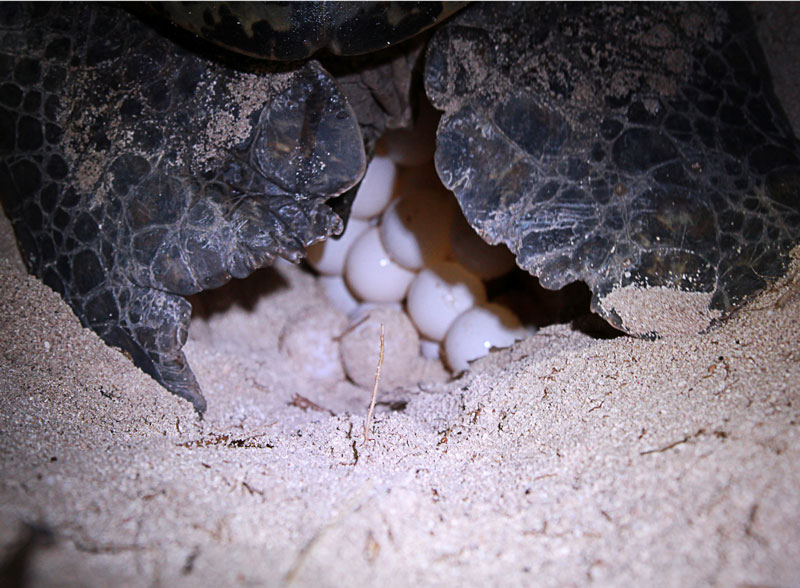Goo Lets Turtle Moms Pause Eggs' Growth

Pregnant turtles hit the pause button on their eggs' development until the time is just right to lay them in a nest, researchers say. The careful moms do this by producing a gooey substance in their reproductive tracts that cuts oxygen to the embryos, a study shows.
Female turtles must be choosy about when and where they lay their delicate eggs to make sure food resources are available and environmental conditions are safe.
"After an egg is laid, the membrane inside the egg connects and so the egg can't be turned at all or the young will die," study researcher Anthony Rafferty, of Australia's Monash University, said in a statement.
"We think she wants to stop the development of the egg before it reaches that stage, because if she was laying the egg, and it turned at all during the laying, it would die if it were at any further stage of development."
Rafferty and his colleagues studied eggs and oviduct secretions from three species of freshwater turtles as well as green sea turtles collected in Australia. They found that a mucuslike substance produced by the pregnant turtles created low oxygen levels in their reproductive tracts, which froze the embryos' development at a certain stage. Meanwhile, the embryos kept at optimal conditions with plenty of oxygen continued to grow normally, the study found.
The findings shed light on why live-birth has not evolved in turtles. Other reptile species developed to have live births, likely by holding onto their eggs for increasingly extended periods, allowing embryos to develop to advanced stages inside the mother.
The research, which was published in The American Naturalist, also could eventually help conservationists who find that the eggs of endangered turtles, like the leatherback turtle, often fail to hatch. "It seems that a lot of the embryos in those nests are failing to restart developing after they are laid, dying at the stage of development that we're studying," Rafferty said. "We think that the trigger to restart development is not occurring in these eggs after they are laid and the embryos subsequently die. Further research will give us a better picture of this."
Get the world’s most fascinating discoveries delivered straight to your inbox.
Follow LiveScience on Twitter @livescience. We're also on Facebook & Google+.



